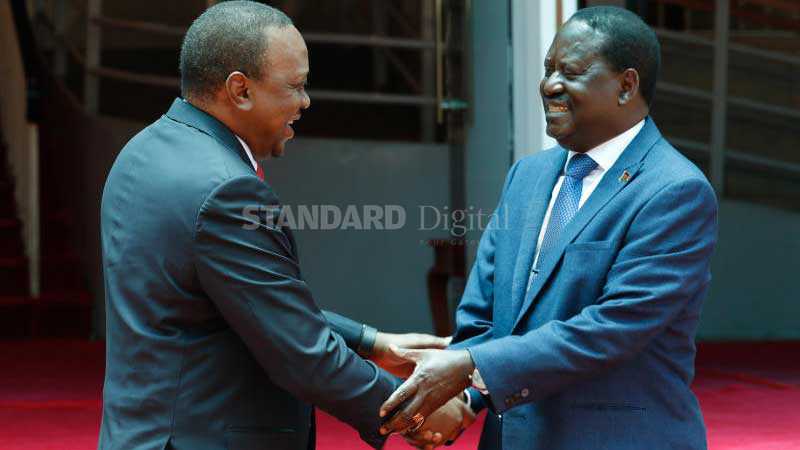
The Friday, March 9 handshake on the steps of Harambee House brings up memories of another handshake in the same place, with some of the same people, for the same reasons, 10 years earlier. On that day, President Kibaki stood on the same steps, his right hand locked in a warm handshake with ODM leader Raila Odinga. Peace had returned to Kenya after two months of violence and uncertainty. About 1,300 people had died. Some were permanently maimed. Property had gone up in fiery flames. Some was looted.
Then, like now, the handshake brought a huge sigh of relief. The presidential election in December 2007 had gone awry. The Opposition claimed that President Kibaki had stolen Raila’s victory. ODM refused to recognise Kibaki as a legitimately re-elected President. And so, for eight weeks, Kenya bled, burned and mourned.